You’ve read the first part of this, right? So you know what the deal is? Good. If not, go back, read that, then come back here. I’ll be waiting.
The Big Knife (1955)
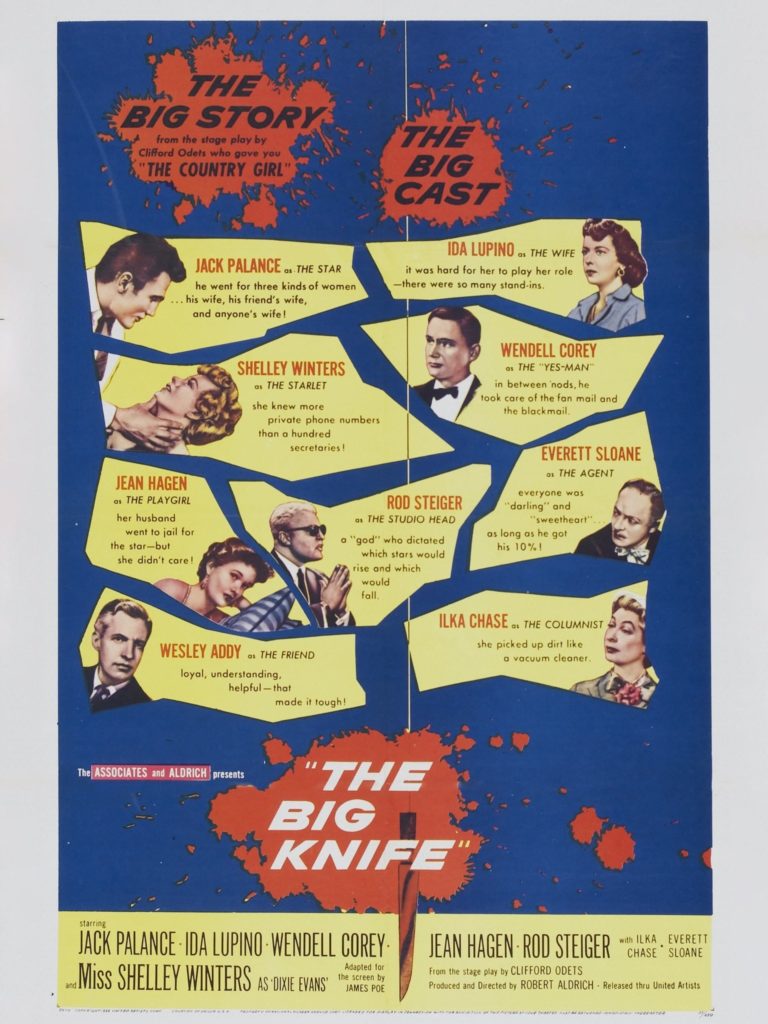
This is one of those movies where I can see someone debating me about — is it film noir or is it just an Odets melodrama that a studio boss thought would play well to the cheap seats if the director cranked it up? Obviously, I fall into the former camp: it’s a taut psychological drama about Hollywood eating itself, loaded with double-crosses and the ghost of a crime from years ago.
Jack Palance is captivating as Charlie Castle, a successful actor who’s caught between his wife Marion (the always-divine Ida Lupino) and Rod Steiger’s studio boss Stanley Shriner Hoff, a man who is determined not to let go of a valuable piece of merchandise. As you probably know, underplaying it was never Palance’s thing, but he’s perfectly cast here. Director Robert Aldrich and Cinematographer Ernest Laszlo take the single set and transform it as needed, making it a capacious home fit for a king of the silver screen in one scene and a cramped cell the next.
I’ll warn you now: it’s got an unhappy ending and continually reveals a nasty side to moviemaking that contemporary critics like the New York Times’ Bosley Crowther thought was far-fetched. We now know that Odets and screenwriter James Poe were just vaguely waving towards the tip of the iceberg.
The Big Clock (1948)
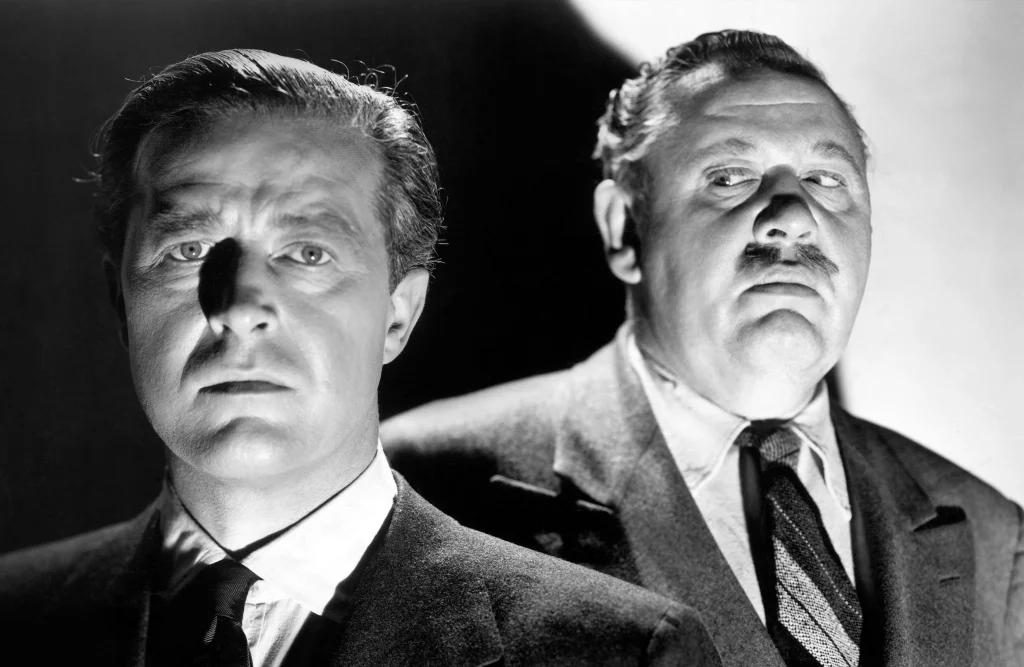
Ray Milland, Charles Laughton, Maureen O’Sullivan, Elsa Lanchester, and Harry Morgan all earn their paychecks in this story of an crime magazine editor who ends up on the wrong side of a manhunt, directed by John Farrow and adapted by Jonathan Latimer from a Kenneth Fearing novel. George Stroud (Milland) is the editor-in-chief of Crimeways, part of the publishing empire built by Charles Laughton’s Earl Janoth. He’s desperate for a long-delayed honeymoon with his wife and their kid, but the boss says “No, there’s a big story brewing and you’re needed here.”
And that’s when things get hinky. There’s an attempt at blackmail, a murder, an abstract painting, a trip to West Virginia and much more in this movie’s lean 95 minute runtime. What makes this one really stand out is where the majority of the action takes place: Janoth’s Manhattan skyscraper. It’s a blockbuster setpiece, a building whose lobby is dominated by the titular timepiece and floors dedicated to each of Janoth’s various magazines, complete with accompanying decor, the whole thing feels a direct antecedent for Hudsucker Industry’s offices in the Coen’s The Hudsucker Proxy.
Note: The short story that became Fearing’s novel was adapted twice more: the French film Police Python 357 and No Way Out, starring Kevin Costner.
The Mob (1951)
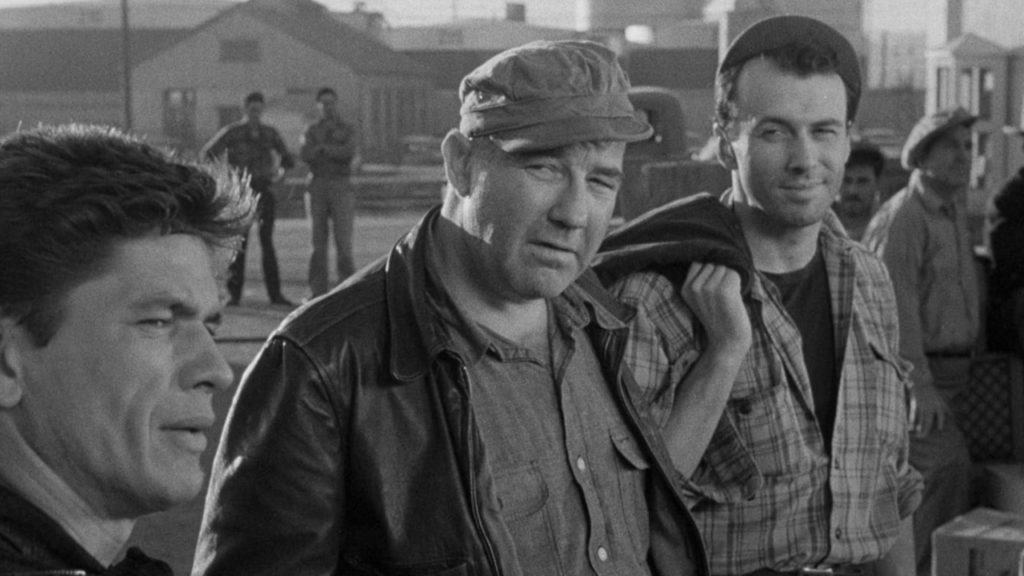
Like Edmond O’Brien, who I talked about last time, Broderick Crawford’s one of those actors I just plain like. He’s got an everyman quality that really helps sell him, even in roles where you’d normally see a square-jawed hunk. Here, he’s playing Johnny Damico, a workaday police detective (complete with fiancee) who stumbles onto a crime ring and ends up going undercover to take find out more about them.
There’s lots to love here, most of it centered around Crawford’s ability to find the right tone for any given scene. He’s as world weary as he is capable, as smart as he is schlubby and it just works. Most importantly, there’s humor, much of it pinned to a reveal that I just can’t go into; I was so delighted by a 70-year-old movie’s ability to surprise me that I want everyone to have that moment. That humor makes you really care about Crawford’s Damico, and you’ll be riveted to the climax because you really want this guy to get out okay.
Also, Ernest Borgnine! (And as you probably noted above, Charles Bronson!)
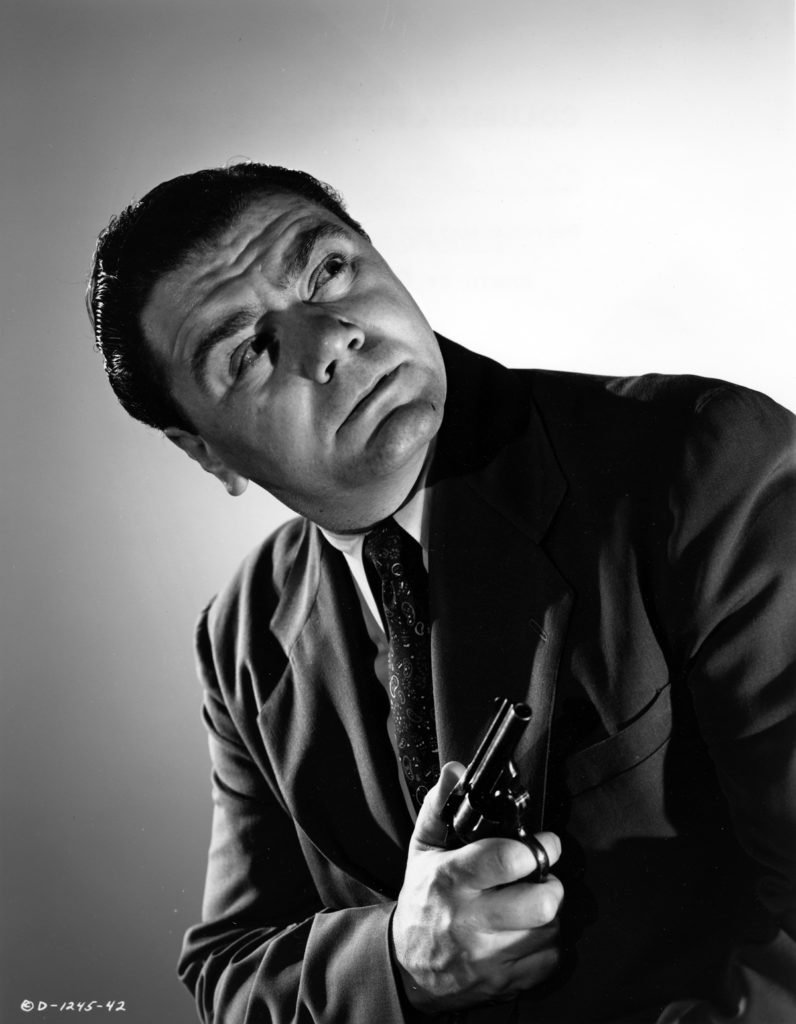
(DVD) (Streaming) (Region B Blu-Ray)
Force of Evil (1948)
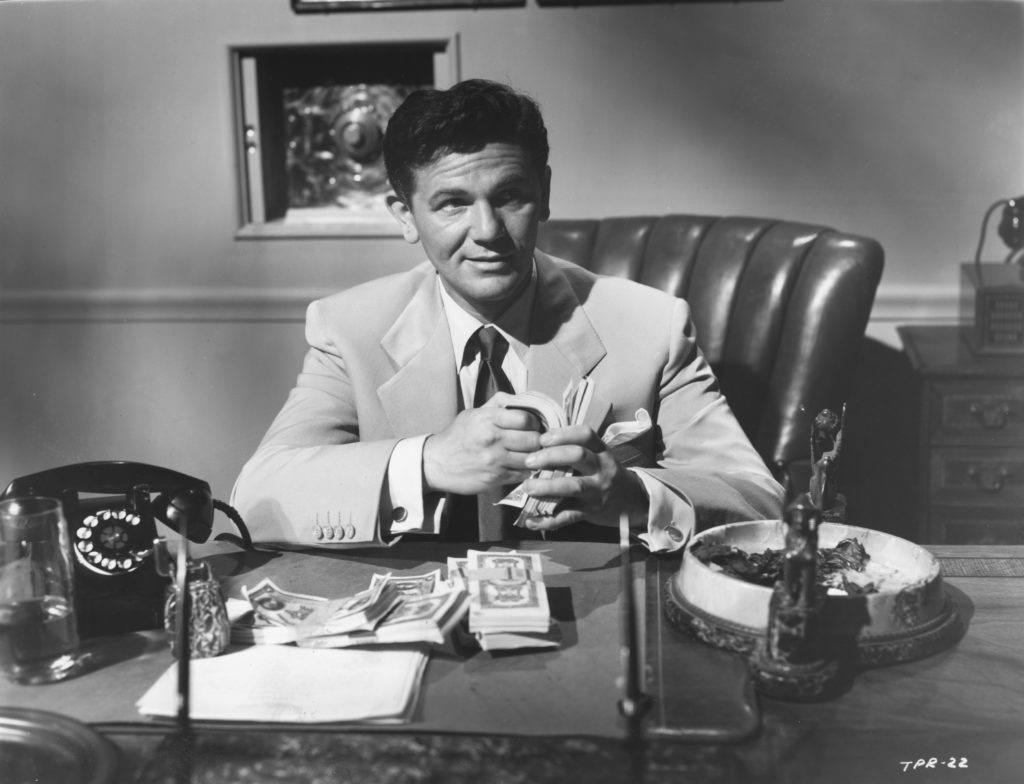
John Garfield’s Joe Morse is an attorney, and he works for a powerful gangster (Roy Roberts as Ben Tucker) who’s looking to consolidate the numbers racket in New York City under his purview. To do this, he’s got to eat up all the smaller shops in the five boroughs, and that includes a tiny outfit run by Joe’s brother Leo. Joe tries to make things easier on his sibling, but it all falls apart, with a ripple effect that hurts far too many people.
This is a markedly intelligent crime-and-punishment story, helmed by Abraham Polonsky, who had worked with Garfield on the 1947 boxing picture Body And Soul. The language is a bit flowery (as Variety pointed out at the time) but the plotting, performances, and production are all top-notch. Like The Big Knife, this is a drama more than the straightforward crime flick that most people associate with the genre, and that’s what makes it one of my favorites.
In Part Three: two boxing noirs, Victor Mature and Richard Conte butt heads, and Mickey Rooney turns in his best performance.
Leave a Reply